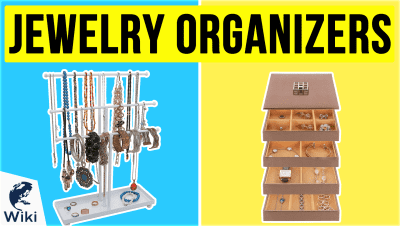5 Organizations Building A Better Future In Maine
In order to achieve an equitable and sustainable society in the future, smart planning must be executed, and not just at the national level. These organizations work at the state and local level to fight against hunger, ensure access to housing and medical care, and protect the environment in the state of Maine. This video was made with Ezvid Wikimaker.
5 Groups Doing Meaningful Work in Maine
| Organization | Headquarters | Focus |
|---|---|---|
| ecomaine | Portland | Offers environmentally-sound solid waste solutions to more than 70 communities |
| Biodiversity Research Institute | Portland | Uses scientific findings to assess emerging threats to wildlife and their habitats, and offers consulting services to government agencies, nonprofits, and universities |
| Maine Seacoast Mission | Bar Harbor | Serves communities on the eastern coast and unbridged islands, providing medical care, food programs, and scholarships for local students |
| GrowSmart Maine | Augusta | Promotes equitable housing choices and sustainable growth with an eye on public transportation, preserving open spaces, and creating walkable neighborhoods |
| Maine Audubon | Falmouth | The oldest and largest wildlife conservation organization in the state, works to protect nature through education, advocacy, and population recovery projects |
Maine Audubon on how Black-capped Chickadees Stay Warm in Winter
Maine Statistical Snapshot
- Total population: 1,274,923
- Median age: 38.6
- Owner-occupied housing rate: 71.6%
- Median gross rent: $808
- Population 65 and over: 20.6%
- Residents with a bachelor's degree or higher: 30.3%
- Median household income: $53,024
- Poverty rate: 11.6%
- Population per square mile: 43.1
- Obesity rate: 29.1%
- Days per year with unhealthy air quality: 282 (national average 227)
- Drinking water violation points per 100,000 residents: 11.23 (national average 2.4)
- Endangered species in Maine: Sedge wren, piping plover, peregrine falcon, golden eagle, New England cottontail, box turtle
How ecomaine Generates Electricity from Trash
In Depth
Maine is renowned for its peaceful beauty, and future generations should be able to enjoy what makes the state so special. In order for that to happen, planning must be done with an eye toward sustainability, equality, and preserving nature, and these organizations are up to the task. Here are, in no particular order, five groups doing what it takes to create a bright future for the state of Maine.
Starting off the list at #1 is ecomaine, which provides environmentally-sound solid waste solutions and works to increase awareness of sustainable waste management strategies. Founded in 1976 in response to a law that called for the closing of privately-owned landfills, it has grown to service more than 70 communities and operates three facilities, including a recycling location and a waste-to-energy plant that converts trash into electricity.
Resources are offered on the organization's website to aid in understanding what types of waste are recyclable, so citizens and municipalities can get the word out, with detailed lists available in multiple languages. Educational tours are offered free of charge, and interested parties can also subscribe to the newsletter and peruse potential job opportunities to get involved in expanding proper waste management in the state.
Resources are offered on the organization's website to aid in understanding what types of waste are recyclable, so citizens and municipalities can get the word out, with detailed lists available in multiple languages.
At #2 is the Biodiversity Research Institute in Portland. Relying on collaborative research and scientific findings, BRI assesses emerging threats to wildlife and their ecosystems in order to promote environmental awareness among both lawmakers and the public. This includes work by the Center for Mercury Studies, the Center for Waterbird Studies, and the Center for Ecology and Conservation Research, all of which frequently publish scientific research.
BRI manages a multitude of programs, including those focused on the Arctic, mammals, waterfowl, wetlands protection, and renewable energy developments and their effect on wildlife. The group also offers consulting services to supply their expertise in analysis and wildlife health to governmental agencies, non-profit organizations, and universities. For those who want to learn more, River Point Bird Observatory has volunteer and educational opportunities, or you could join a coastal birdwatching cruise to see nature up close.
The #3 pick is the Maine Seacoast Mission, which has been helping communities for over 100 years. Based out of Bar Harbor, it serves those living along the eastern coast of the state, many of whom live in isolated villages and on islands reachable only by boat or airplane. The organization's 74-foot vessel brings medical care via the ship's nursing and telemedicine facilities to as many as 90% of an island's residents.
The organization's 74-foot vessel brings medical care via the ship's nursing and telemedicine facilities to as many as 90% of an island's residents.
The group also fights hunger through the Weald Bethel Food Pantry, Organic Pantry Garden, the Table of Plenty program, and school initiatives working to ensure all students have enough to eat. Scholarships are also offered to help high-school graduates and participants in the EdGE program. To help out with this wide-ranging and important work, it's possible to plan a gift online, whether in the form of cash or a donation of assets.
#4 is GrowSmart Maine, which works to revitalize communities while protecting natural resources through sustainable planning, with an eye on preserving the beauty and uniqueness of the state for future generations. Their Principles of Smart Growth include providing a range of housing opportunities, preserving open space, offering public transportation, and making development decisions cost-effective while supporting fairness.
The group holds an annual summit featuring speakers and breakout sessions to spark collaboration in order to address the pressing issues facing Maine communities. It also regularly advocates for important issues, speaking with lawmakers and testifying on relevant legislation. Both individuals and businesses can join as members, enhancing the strength of this powerful coalition and connecting like-minded people through events and profiles in its newsletter.
The group holds an annual summit featuring speakers and breakout sessions to spark collaboration in order to address the pressing issues facing Maine communities.
Rounding out the list at #5 is Maine Audubon, which boasts more than 10,000 members and is the largest wildlife conservation group in the state. Since 1843, the organization has worked to protect nature through education, advocacy, and conservation. It works with local residents to lend a helping hand to endangered species like the Piping Plovers and Least Terns, which require space on beaches to nest and raise their young.
One of the most impressive parts of the group's work is its environmental education initiatives. Kids and adults can participate in workshops, nature walks, and group activities where they'll be able to learn about wildlife while having fun. You can also join the more than 1,000 volunteers that participate in the yearly Loon Count, collecting valuable data and tracking the population of these incredible birds.















